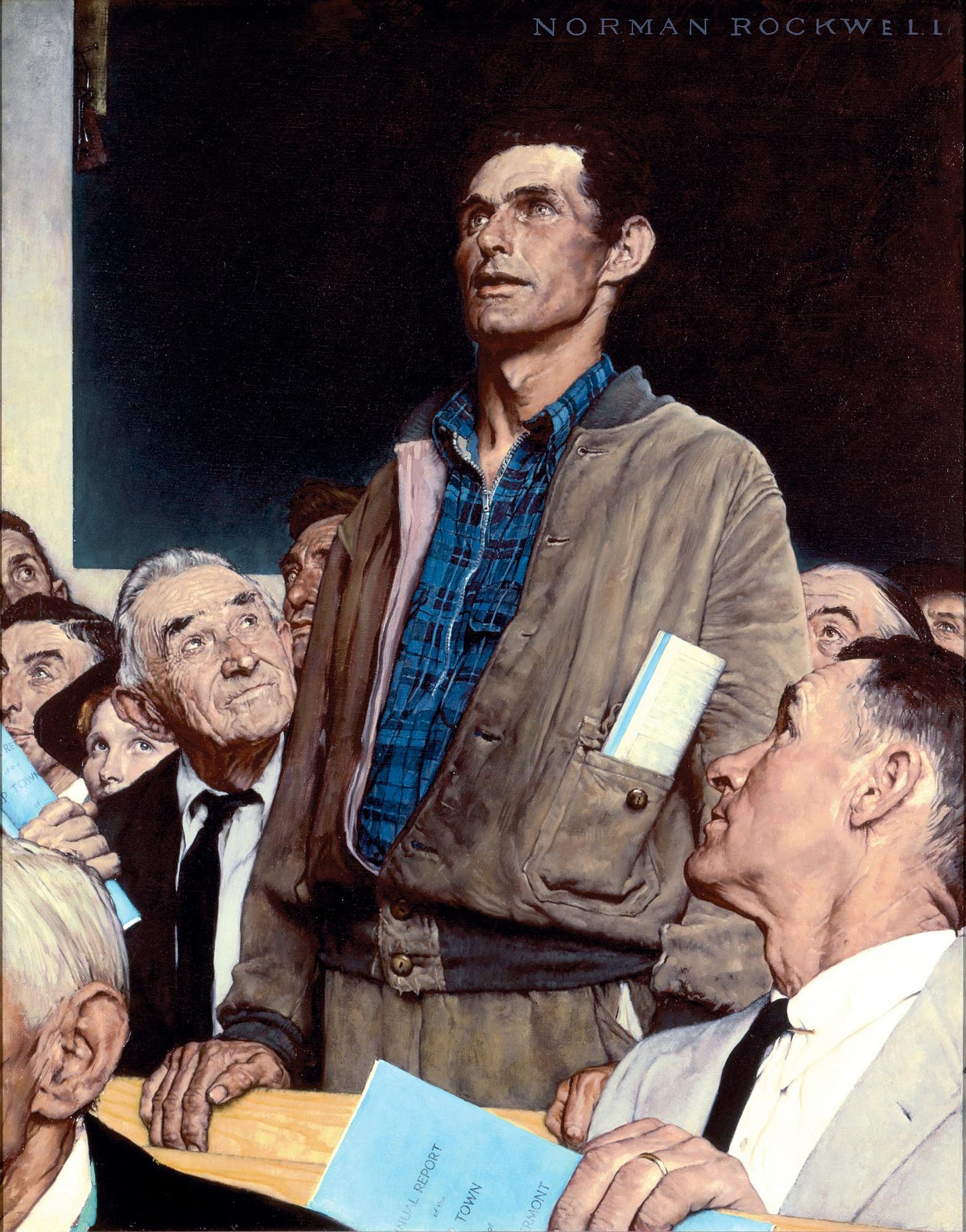Why Are Americans Growing Less Comfortable With Speaking Up?
The Paradox of the Internet
Catch-up service:
Is Forgiveness a Power Move?
20 Observations On Friendship
Weird Should Not Be an Insult
Nike’s Winning Strategy
Over the last twenty years Americans have become ever more confident in making unconventional choices, whether of partner or religion or lifestyle. The major exception is speech. A survey-based study published by psychologists at Michigan State University finds that, across the twenty-first century to date, Americans have become more fearful of dissenting:
“Lack of concern”, on the vertical axis here, refers to concern about expressing an unusual view. It’s a composite measure made up responses to a series of statements like, “It is always better to agree with the opinions of others than to be considered a disagreeable person”. The study finds that Americans have also become increasingly less willing to defend their beliefs in public:
That last measure has declined by 6.5% over the twenty years covered by the study, a quite substantial amount. Participants are also less likely to say they’re prepared to “break the rules”. Overall, say the authors of the study, Americans have a “lower need for uniqueness” particularly when it comes to publicly expressed beliefs.
The lead author, William Chopik, said in an interview, “This study acknowledges that people have valid fears and concerns about standing out, so much so that they’re less willing to do so. It’s really important to have people willing to go against the grain…Withholding who we authentically are by trying so hard to blend in can ironically backfire and lead to guilt, anxiety and, sometimes, even more animosity between people.”
Of course, I could not agree more: I wrote a whole book making the same case.1 The intriguing question, to me, is why this trend towards conformity of speech and ideas is happening in the age of online media.






